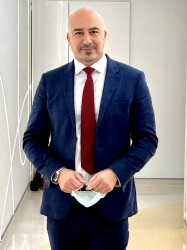BibTex format
@article{El-Osta:2023:10.1186/s12894-023-01180-2,
author = {El-Osta, A and Kerr, G and Alaa, A and Asmar, MLE and Karki, M and Webber, I and Sasco, ER and Blume, G and Beecken, W-D and Mummery, D},
doi = {10.1186/s12894-023-01180-2},
journal = {BMC Urology},
pages = {1--12},
title = {Investigating self-reported efficacy of lifestyle medicine approaches to tackle erectile dysfunction: a cross-sectional eSurvey based study},
url = {http://dx.doi.org/10.1186/s12894-023-01180-2},
volume = {23},
year = {2023}
}

